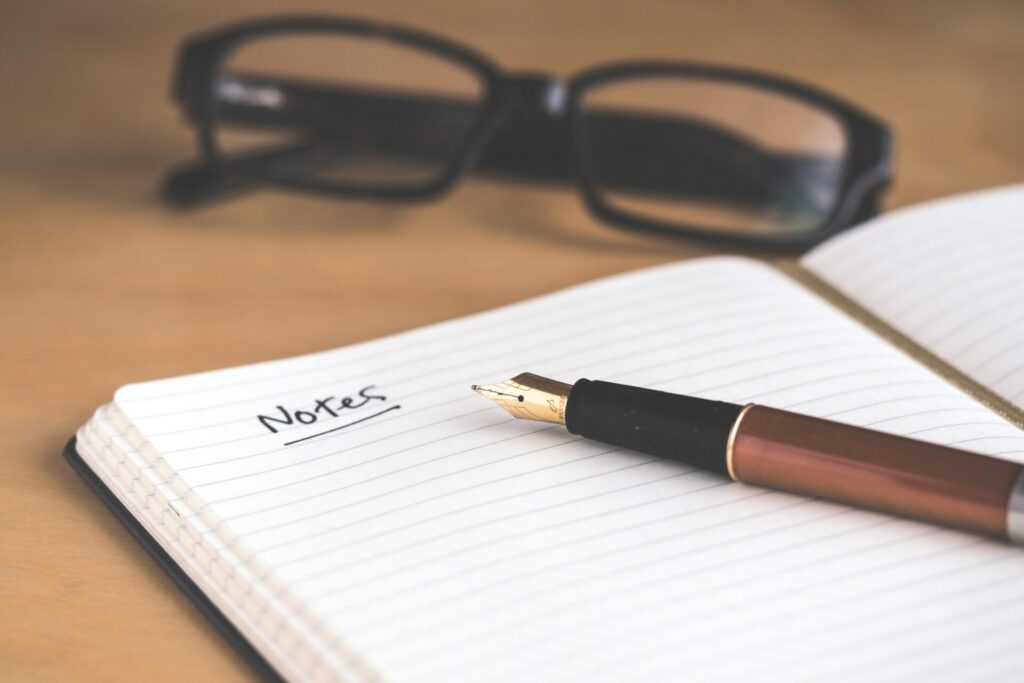Do you have a routine when it comes to how to end a therapy session as a therapist? Or is it something you muddle through each time?

I know there is so much variability in what’s relevant for each therapist, client, modality and theoretical orientation. Because of this, there seems to be very little information on the internet on how to end a therapy session.
There does seem to be lots of helpful tips on how to end a session on time. But, there are so many other things that go into ending a therapy session than timing.
I’d like to offer some advice on the topic, knowing that there’s no way that the tips that I offer will apply the same to everyone. So, I will try to capture some of that nuance in this article.
9 Tips On How To End A Therapy Session
1) End On Time

- This tip should come as no surprise. And yet, I still struggle with it.
- There is so much that goes into ending sessions on time, that I actually wrote a whole article about it.
- Keep tabs on your time. There are different ways to go about this. Personally, I have an analog clock that is right in my sight line. It is small, unobtrusive and non-ticking.
2) Have A Consistent Structure
- Have consistency in how you end your sessions. This helps foster safety in therapy.
- The consistency may be different from one client to the next or one modality to the next.
3) Tailor Your Ending To Each Client
- Become aware of each client’s tendencies and create a closing routine that fits them best.
- Some clients may just need 2-4 minutes to summarize, wind down, and cover any housekeeping items like scheduling.
- Other clients may need more of a runway to have a bit of a “palette cleanser” at the end of a session to help their brain transition out of potentially weighty content.
- Still others might benefit from a therapist who holds boundaries for them and is more structured in how the time ends.
- Be sure to create a system that best fits your style, your theoretical approach, and your particular client’s needs.
4) Signal The Session Is Ending Soon
- There are a variety of ways to go about this. Some therapists have a physical signal that the session is ending. For example, you may reach for your scheduler.
- Personally, I like to use a sentence to signal the end is drawing near.
- Some examples of what this can sound like include: “I notice that we have a few minutes left of our time…” or “As we’re coming towards the end of our time for today…”
- If my client is in the middle of something weighty or significant as the end of the session approaches, I like to acknowledge that tension by saying something like: “I”m aware that you’re bringing up something significant, and we likely don’t have enough time left today to give it the attention it deserves. I wonder if we can table this for today and save it for next time?”
5) Summarize Main Themes
- How you go about this is going to depend on your theoretical approach and your particular client.
- For clients who are following a more structured protocol, I might summarize what goal we worked on today and give a little preview of what we intend to focus on next time.
- For clients following a less structured approach, I like to summarize any overarching themes I observed from our session. Then, identify any “aha” moments the client had, and tie these threads back to the client’s stated goals.
- If I observe the client move towards growth in any way, or tackle a challenge in session then I like to acknowledge their work and growth. I’ll say, “I know it’s not easy for you to talk about this topic. You did it! You have a lot to be proud of yourself for.”
6) Name Relevant Homework/Follow-Up
- This depends greatly on how you structure your therapy sessions.
- If you do follow a more structured format, this is a good time to remind them of or describe the homework for the week.
- If you are following a less structured approach, it is still helpful to find ways to create ties between the work in session and the client’s real life.
- For example you might say, “It might be interesting to observe whether the triggering experience we talked about today comes up in any other contexts.”
- It’s nice to encourage a bit of curiosity towards themselves throughout the week. It’s also a bit of foreshadowing that I’ll ask about it in our next session.
- When relevant, you might consider including reminders of safety plans or plans that you made with your client to support their care after the session ends.
7) Address Housekeeping Items
- At this point I would say, “Is there anything else we need to touch on before we need to discuss scheduling?” This makes it clear that we are making a transition away from the therapeutic content.
- I’m an advocate for finding any way to streamline your housekeeping process so it doesn’t eat into your therapy time.
- Some of the ways I have streamlined some of these housekeeping items include: booking weekly/bi-monthly running appointments, and giving the option for clients to save their credit card on file.
- If clients have chosen these options, I still check in and say, “We’re already booked for the same time next week, unless you’d like to make any changes to that?” And then, “Would you still like for me to charge the card I have on file for you?”
8) Acknowledge The Session Has Ended
- At this point you can say something like: “Okay, we’re all set! I look forward to seeing you next week.”
- Or if there’s something major going on I might find a very generic way to acknowledge my care for them, like: “Best wishes with everything you have going on this week!”
- I usually wind up using these comments as I walk clients to the door.
9) Take Notes

- After the client has left, I like to quickly jot down 1-3 short bullet points. This helps me jog my memory later when I go to write the formal progress note.
Of course, there are so many ways to end a therapy session.
There may be differences in your experience. For example, maybe you have a receptionist out front who takes care of scheduling for you. Or maybe you follow an approach that has a very specific protocol for how to end sessions, such as EMDR.
Please tailor your approach in a way that is appropriate for the work that you do.
But, I do encourage you to find an ending routine that is helpful for you, so if you deviate you know that you are being intentional about “coloring outside the lines”. Rather than feeling like you don’t have any idea of how to “land this plane”.
Endings and Beginnings
Thinking about how to end a session may have prompted you to reflect on how you start a therapy session. I have a video where I outline tips for those first few minutes you meet with a client.
Until next time, from one therapist to another: I wish you well.
-Marie
Photo by Ana Arantes on Pexels
Image by Анастасия from Pixabay
Photo by David Travis on Unsplash
Leave A Reply